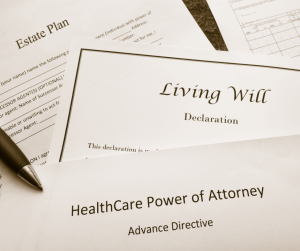What is Collaborative Trusts and Estate Practice?
By Kamela Love, Esq.
Collaborative Practice was an automatic fit for me. While lawyers get trained to think adversarially in law school, I found that approach is counter to how I think and to how I am. When I heard about Collaborative Practice, I knew it was a perfect fit for me.
Collaborative divorce is a much more respectful and peaceful way to get divorced and case after case has proven that to be true. Couples generally walk away feeling they were treated much more “fairly” than they would have been treated in court and the family unit is more likely to keep some semblance of togetherness and “familyness” post-divorce. So why not use the Collaborative Practice model in Trust and Estates disputes as well?
Collaborative Trusts and Estates was born in the SF Bay Area about ten years ago and I have been deeply involved with that pioneering group of professionals for the past six years! In fact, I am the first Trust attorney to bring collaborative Trust & Estates work to the San Diego area! The collaborative team – like in a collaborative divorce – consists of one or more attorneys, a financial professional and a mental health professional acting as a Communication Coach.
Unfortunately, chances are that the passing of a family member can spark old feelings of envy, jealousy and deep resentment for one thing or another within the family. Many times, these feelings have lain dormant for many years and can surface while settling the estate of a loved one who has passed away.
What was once a peaceful and calm familial relationship suddenly explodes into a full scale battle of nasty behaviors, hurt feelings and often, litigation. Many times the results are irreparable, and family members remain estranged. Collaborative practice brings more humanity and listening into the process and can prevent and/or solve family squabbles! When compared to a trust litigation matter, an added bonus of using the Collaborative model is that it’s much more likely to preserve the value of the estate and thereby put more money in the hands of the heirs as their inheritance! Win-win for all.
An Example
I was once involved in a collaborative matter where there were four siblings who had an elderly parent who was mentally incompetent. One of the four adult children was living with Mom and had control of all of Mom’s financial and healthcare matters. The other three siblings were upset and angry because the one who was Power of Attorney Agent and Advance Healthcare Directive Agent did not want to relinquish financial information nor to share medical records about their parent. As you can imagine, there was a big power dispute dynamic regarding all of this.
We brought in a mental health professional who helped all the siblings look at the family system relationships that were interfering from childhood. One thing we’ve learned in Collaborative Practice is that an old (like many decades old!) emotional dynamic can hold the physical and practical conflict in place which often prevent resolution without addressing the emotional, relational, and communication aspects in the family.
The results of this collaborative process:
- All financial and healthcare issues were addressed;
- Siblings came to an agreement on sharing roles such that the power and legal responsibilities were split;
- Sensitive information became shared across all siblings;
- Creation of the plan was a joint effort so all siblings felt included and like they each held an important role.
Much like mediation for a family divorce, the Collaborative Practice approach provides an alternative resolution process to help solve disputes. This keeps the family out of potentially expensive litigation, controls the outcome of the estate, and finds solutions through a win-win mediation process. This approach is about dialogue and creating understanding, which typically keeps costs lower than litigation and allows families to continue being families! The chances of emotional distress, conflict and drama are minimized as much as possible and to the extent the emotions are holding the conflict in place, we address those emotions with sensitivity and care.
Collaborative Practice works equally well with estate planning as it does with family divorce. Professionals familiar with Collaborative Practice work with the family for proper estate planning during the Trustmaker’s lifetime which essentially minimizes the chances of shocks and surprises when the trust administration/estate settlement process begins. And, if a dispute arises after a family member’s death, Collaborative Practice is the best option for an out-of-court mediated settlement where family members’ relationships are most likely to be preserved. In this day and age, it’s really a no-brainer to stay out of court and hire a Collaborative Team to support your family through any challenges in the Trust and Estates arena.
Give Collaborative Practice San Diego a call to discuss how we can help.
Kamela R. Love (formerly R. Kamela Laird)
475 W. Bradley Ave.
El Cajon, California 92020
(619) 389-2753
https://www.integratelegacylaw.com/

